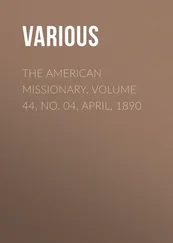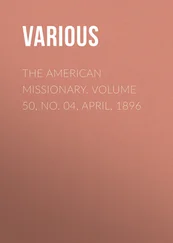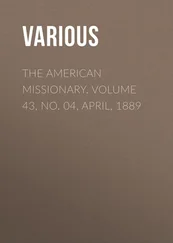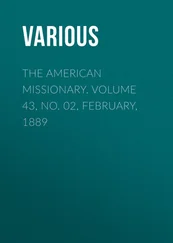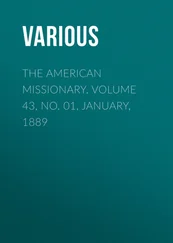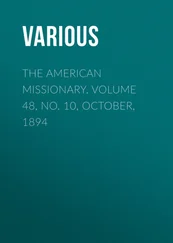Elizabeth Ellet - The Women of The American Revolution, Vol. 2
Здесь есть возможность читать онлайн «Elizabeth Ellet - The Women of The American Revolution, Vol. 2» — ознакомительный отрывок электронной книги совершенно бесплатно, а после прочтения отрывка купить полную версию. В некоторых случаях можно слушать аудио, скачать через торрент в формате fb2 и присутствует краткое содержание. Жанр: foreign_antique, foreign_prose, на английском языке. Описание произведения, (предисловие) а так же отзывы посетителей доступны на портале библиотеки ЛибКат.
- Название:The Women of The American Revolution, Vol. 2
- Автор:
- Жанр:
- Год:неизвестен
- ISBN:нет данных
- Рейтинг книги:5 / 5. Голосов: 1
-
Избранное:Добавить в избранное
- Отзывы:
-
Ваша оценка:
- 100
- 1
- 2
- 3
- 4
- 5
The Women of The American Revolution, Vol. 2: краткое содержание, описание и аннотация
Предлагаем к чтению аннотацию, описание, краткое содержание или предисловие (зависит от того, что написал сам автор книги «The Women of The American Revolution, Vol. 2»). Если вы не нашли необходимую информацию о книге — напишите в комментариях, мы постараемся отыскать её.
The Women of The American Revolution, Vol. 2 — читать онлайн ознакомительный отрывок
Ниже представлен текст книги, разбитый по страницам. Система сохранения места последней прочитанной страницы, позволяет с удобством читать онлайн бесплатно книгу «The Women of The American Revolution, Vol. 2», без необходимости каждый раз заново искать на чём Вы остановились. Поставьте закладку, и сможете в любой момент перейти на страницу, на которой закончили чтение.
Интервал:
Закладка:
E. F. Ellet
The Women of The American Revolution, Vol. 2
XXVI. MARTHA WASHINGTON
None who take an interest in the history of Washington can fail to desire some knowledge of her who shared his thoughts and plans, and was associated with him in the great events of his life. Few women have been called to move, in the drama of existence, amid scenes so varied and imposing; and few have sustained their part with so much dignity and discretion. In the shades of retirement, or the splendor of eminent station, she was the same unostentatious, magnanimous woman; through the gloom of adverse fortune she walked by the side of the Chief, ascending with him the difficult path Heaven had opened before him; and when standing with him on the summit, in the full light of his power and renown, the eyes of her spirit looked still upward, seeking in the smile of the Supreme a reward which earthly honors could not bestow.
Though the life of Mrs. Washington was a changeful one, and had its full measure of sorrow and joy, it affords little material for the biographer. She moved in woman's domestic sphere, to which pertain not actions that strike the public eye, but uncomplaining endurance, and continual, unnoted self-sacrifice. The best account of her is the memoir prepared for the National Portrait Gallery, by her grandson, George Washington Parke Custis, of Arlington, D. C. According to this, Martha Dandridge was descended from an ancient family that migrated to the colony of Virginia and was born in the county of New Kent, in May, 1732. Her education was only a domestic one, such as was given to females in those days, when there were few seminaries of instruction, and private teachers were generally employed. Her beauty and fascinating manners, with her amiable qualities of character, gained her distinction among the ladies who were accustomed to resort to Williamsburg, at that time the seat of government.
When but seventeen, Miss Dandridge was married to Colonel Daniel Parke Custis, of the same county. Their residence – called the "White House," – was on the banks of the Pamunkey River, where Colonel Custis became a highly successful planter. None of the children of this marriage survived the mother; Martha, who arrived at womanhood, died at Mount Vernon, in 1770; and John perished eleven years later, at the age of twenty-seven.
Mrs. Custis was early left a widow, in the full bloom of beauty and "splendidly endowed with worldly benefits." As sole executrix, she managed with great ability the extensive landed and pecuniary business of the estate. Surrounded by the advantages of fortune and position, and possessing such charms of person, it may well be believed that suitors for her hand and heart were many and pressing.
"It was in 1758," says her biographer, "that an officer, attired in a military undress, and attended by a body servant, tall and militaire as his Chief, crossed the ferry called Williams's, over the Pamun-key, a branch of the York River. On the boat touching the southern, or New Kent side, the soldier's progress was arrested by one of those personages who give the beau ideal of the Virginia gentleman of the old regime – the very soul of kindness and hospitality." He would hear of no excuse on the officer's part for declining the invitation to stop at his house. In vain the Colonel pleaded important business at Williamsburg; Mr. Chamberlayne insisted that his friend must dine with him at the very least. He promised, as a temptation, to introduce him to a young and charming widow, who chanced then to be an inmate of his dwelling. At last the soldier surrendered at discretion, resolving, however, to pursue his journey the same evening. They proceeded to the mansion. Mr. Chamberlayne presented Colonel Washington to his various guests, among whom was the beautiful Mrs. Custis. Tradition says that the two were favorably impressed with each other at the first interview. It may be supposed that the conversation turned upon scenes in which the whole community had a deep interest – scenes which the young hero, fresh from his early fields, could eloquently describe; and we may fancy with what earnest and rapt interest the fair listener "to hear did seriously incline;" or how "the heavenly rhetoric of her eyes" beamed unconscious admiration upon the manly speaker. The morning passed; the sun sank low in the horizon. The hospitable host smiled as he saw the Colonel's faithful attendant, Bishop, true to his orders, holding his master's spirited steed at the gate. The veteran waited, and marvelled at the delay. "Ah, Bishop," says a fair writer describing the occurrence, "there was an urchin in the drawing-room more powerful than King George and all his governors! Subtle as a sphynx, he had hidden the important despatches from the soldier's sight, shut up his ears from the summons of the tell-tale clock, and was playing such mad pranks with the bravest heart in Christendom, that it fluttered with the excess of a new-found happiness!"
Mr. Chamberlayne insisted that no guest ever left his house after sunset; and his visitor was persuaded, without much difficulty, to remain. The next day was far advanced when the enamored soldier was on the road to Williamsburg. His business there being despatched, he hastened to the presence of the captivating widow.
A short time after the marriage, which took place about 1759, Colonel and Mrs. Washington fixed their residence at Mount Vernon. The mansion was at that period a very small building compared with its present extent. It did not receive many additions before Washington left it to repair to the first Congress, and thence to the command-in-chief of the armies of his country. He was accompanied to Cambridge by Mrs. Washington, who remained some time with him, and witnessed the siege and evacuation of Boston. She then returned to Virginia.
So prevalent at one time was the disaffection, as Mrs. Washington herself remarked, that on a visit to Philadelphia, upon her way to camp one season, few of the ladies of the city called upon her. A passage from Christopher Marshall's manuscript diary for the year 1775, 1 1 This passage may be found, quoted from the MS., in a note in the Life and Correspondence of President Reed. Vol. II., p. 24.
curiously illustrates the state of popular feeling at the breaking out of the war.
Mrs. Washington arrived in the city on the twenty-first of November, on her journey to Cambridge. A ball was in preparation, to be given on the twenty-fourth; and it was expected that both she and the wife of Colonel Hancock would grace the entertainment with their presence. But from some threats thrown out, it was feared that a commotion would be made, which might result in disturbance of the peace of the city. A large and respectable committee was held at the Philosophical Hall, called together for the purpose of considering the propriety of allowing the ball to be given that evening; and after mature consideration, it was concluded that no such entertainment should take place, either then, or during the continuance of those melancholy times. A committee was appointed to inform the managers that they must proceed no further in the preparations; and also to wait upon "Lady Washington," and request her not to attend at the assembly to which she had been invited. The committee acted agreeably to directions; and reported that Lady Washington had received them with great politeness, thanked the committee for their kind care and regard in giving her timely notice, and assured them that their sentiments on this occasion were perfectly agreeable to her own.
It was not often that the interest taken by Mrs. Washington in political affairs was evinced by any public expression. The address already mentioned, which was read in the churches of Virginia, and published in the Philadelphia papers, June, 1780, as "The Sentiments of an American Woman" – was attributed – it cannot be ascertained with what truth – to her pen. 2 2 Remembrancer, Vol. VIII.
She passed the winters with her husband. Mr. Custis states that it was the habit of the Commander-in-chief to despatch an aid-decamp, at the close of each campaign, to escort Mrs. Washington to head-quarters.
Интервал:
Закладка:
Похожие книги на «The Women of The American Revolution, Vol. 2»
Представляем Вашему вниманию похожие книги на «The Women of The American Revolution, Vol. 2» списком для выбора. Мы отобрали схожую по названию и смыслу литературу в надежде предоставить читателям больше вариантов отыскать новые, интересные, ещё непрочитанные произведения.
Обсуждение, отзывы о книге «The Women of The American Revolution, Vol. 2» и просто собственные мнения читателей. Оставьте ваши комментарии, напишите, что Вы думаете о произведении, его смысле или главных героях. Укажите что конкретно понравилось, а что нет, и почему Вы так считаете.




